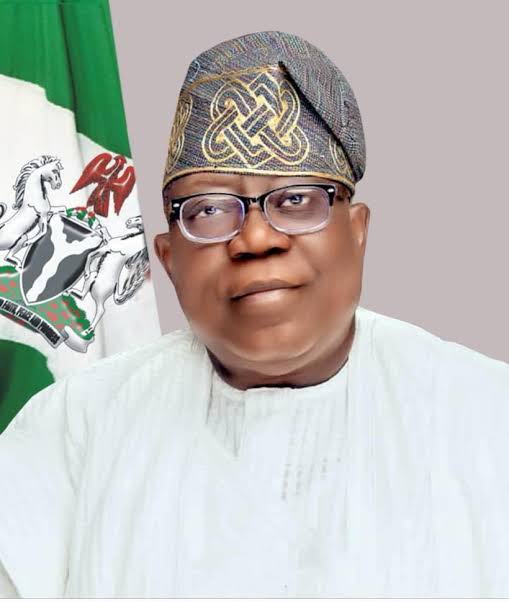Nigeria’s civil service needs to clean its house before it can reclaim its lost glory, according to the Chairman of the Federal Civil Service Commission (FCSC), Prof. Tunji Olaopa, NPOM.
The Chairman, who made the assertion during his meeting with the executive councils of labour unions in the Commission in continuation of his interaction with the staff of the organisation, disclosed that the Commission was broadening and deepening recent and ongoing reforms to address the virtual collapse of the internal management systems and structures that were the pillars of the service in its glorious era in the first decades of independence.
Olaopa identified several structural constraints that limited the efficient and effective function of the federal bureaucracy, including limited capabilities in planning, policy design and implementation, project management, performance monitoring and evaluation and reporting.
‘Many of these are systemic issues that must be resolved before the civil servant can be expected to deliver, without which there is a palpable lack of clarity on actions required of line officers in MDAs to execute national development plans’, the Chairman said.
‘Or what is an individual civil servant to do in a context where there is poor alignment between national plans, sectoral activities and departmental, division and unit schedules, business processes that disable rather than enable delivery, a focus on inputs and processes rather than results, unclear accountabilities and unclear rewards and sanctions for delivery and failure, a budget process encumbered with obstructive and dysfunctional priority-setting and envelopes, poor assets and resource management systems, and silos operations that create red tape and operational bottlenecks?’
Chairman Olaopa stated that the for the civil service, the internal house cleaning involves tackling the virtual breakdown of manpower planning of establishment that is aligned to effective succession scheme and ensuring treasury control of establishment for systematic governance of the growth and size of the service.
The FCSC Chairman disclosed that he and the Head of the Civil Service of Federation have been working together to prioritise the targeted interventions that will beef up policy intelligence, problem-solving, decision quotients, research and analytical work in MDAs.
‘Consequently, we are reviving the old 1988 reform to professionalise the planning, research and statistics functions in MDAs. We will also work to revive the old town and gown synergy to promote policy-oriented research, seminars and knowledge and data culture and future thinking to create strategic balance between short-and long-term sustainability in reform design and praxis’, Olaopa said.
In doing this, he continued ‘we will be at once dismantling the culture of anti-intellectualism in the Nigerian policy space’.
He noted that it was as part of this reform push that he presented and facilitated at the Retreat of the Office of the Special Adviser to the President on Policy and Coordination with MDAs Service Delivery Managers, where the focus was to enhance the capability of the managers to deliver on the performance bonds signed by their principals with His Excellency, President Bola Ahmed Tinubu. The FCSC Chairman identified the immediate capability enhancing measures proposed to include targeted recruitment to inject high-end skills to beef up their organizational IQ and fill consequential vacancies arising from the prolonged embargo on recruitment and exit of core professionals, as well as technical support and handholding by a consortium of firms and experts operating in special programme management offices (PMO) to keep the implementation of the Renewed Hope Agenda of the FGN on track even while the longer term work of reviewing and strengthening the performance capability of the MDAs is ongoing.
Turning to labour issues in the Commission, Chairman Olaopa observed that ‘we are at a juncture where the tripartite social partners need a strategic partnership that promotes industrial harmony and enables the government to dismantle some of the binding constraints that have limited problem-solving, policy implementation impact and real inclusive development in Nigeria.
He enlisted the support of the union leaders in the quest to address ‘conundrum of a federal bureaucratic workforce wherein too many people do nothing, too many do too little, and too few do too much’, adding that what is needed is a new competency-based human resource management in the Federal civil service. Olaopa lamented that the public sector is enmeshed in a culture of waste and corruption that requires a President-led national productivity movement and a strong national waste reduction strategy including a new asset, facility and maintenance culture to redress it. ‘Labour will be doing the nation a disservice if it will not put a halt, even if momentarily, the adversarial and militancy-driven industrial relations strategy for significant no-holds-barred development conversations and engagement to give the Renewed Hope Agenda the benefit of the doubt in the expressed determination to change Nigeria’s development narrative’, the Chairman said.
‘We recognize that there are still many areas of ongoing FGN policies that are do not yet seem to be adding up. As we have a listening government that does not make pretentions to know it all, what Nigeria needs is partnership for progress rather than the reign of ego-driven militancy disruptive industrial disharmony.’
Taiwo HassanHead of Press & Public Relations
Share your story or advertise with us: Whatsapp: +2347068606071 Email: info@newspotng.com
















